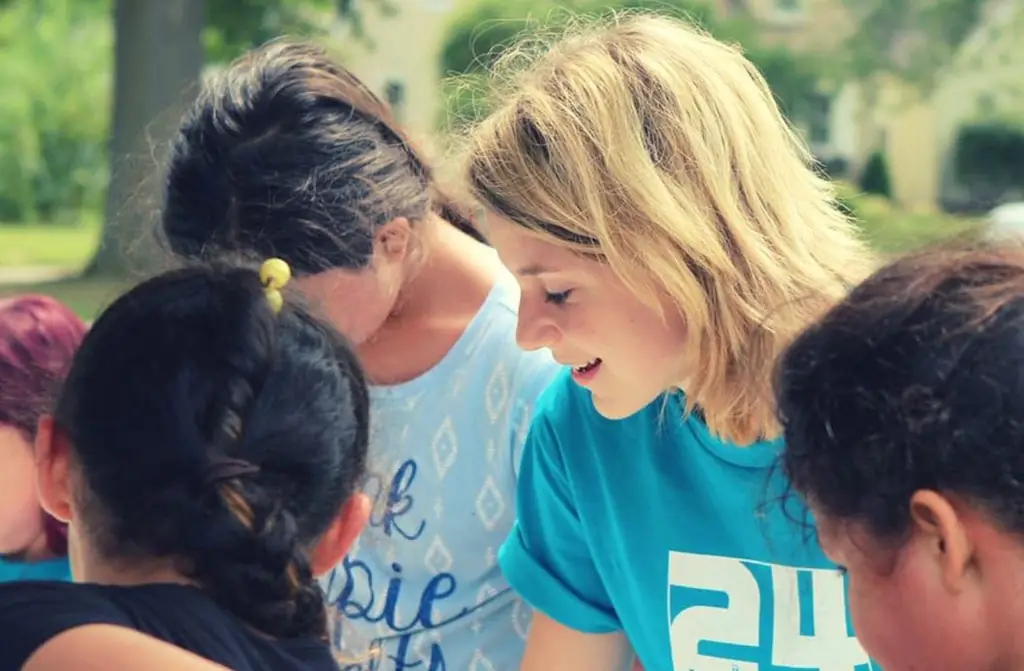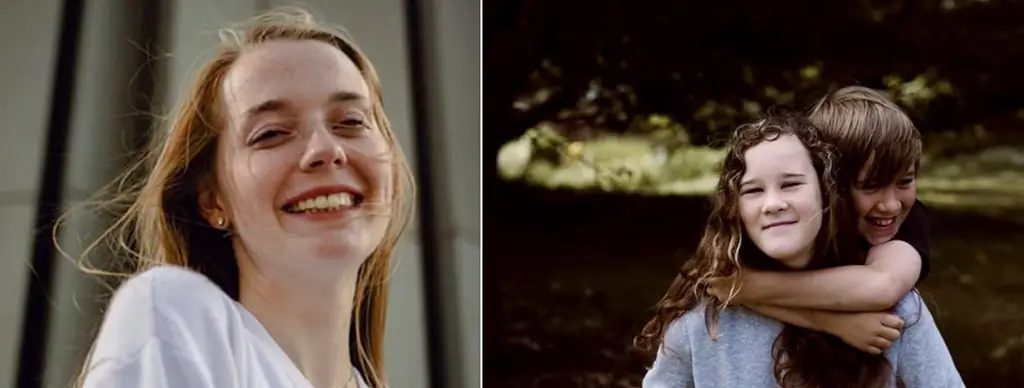- Author Adrian Jeff jeff@psychologosportal.com.
- Public 2023-12-17 05:06.
- Last modified 2025-01-24 14:09.

Why you need to help people
On the issue of obligations to society and mutual assistance, we meet two opposing opinions. Some people try to live according to the principle “no one owes anything to anyone”. Others, on the contrary, advocate that helping others is a natural human need and a necessity for the full development of society. Why are there two completely different approaches in our life?
In this article we will figure out why you need to help people. Let's find out what is the need for helping others, what is the benefit for the one who provides it, and whether there is any sense in all this.
When we witness separate acts of assistance, we do not always understand why this is necessary. After all, you cannot save everyone, you cannot help everyone. Human society is far from ideal, and there are always unhappy, dissatisfied, disadvantaged, sick in it, it is subject to violence and selfishness. So why participate in the fate of other people? What's the bottom line?
Who and what we owe
On the issue of obligations to society and mutual assistance, we meet two opposing opinions. Some people try to live according to the principle “no one owes anything to anyone”. Others, on the contrary, advocate that helping others is a natural human need and a necessity for the full development of society. Why are there two completely different approaches in our life?
We live in an era of maximum individualism, consumption and the pursuit of material values. This is neither good nor bad - it is a fact. A natural stage in the development of society. The next one will be radically different, but everything will have its time.
Now the most demanded qualities in society are competitiveness, the ability to earn money and take responsibility for oneself. Values in tune with the Western mentality. As much as I worked myself, I received a reward. Nobody will do anything for you. This is the correct approach, but sometimes it is mistakenly extended to include human obligations to society. Why help others if everyone is for themselves?
It happens that the thought, why help people, leads to negative experience. For some people, an inner sense of justice and equality is very important. If I have done good to a person, I must be repaid in kind. Honestly. And if you help, but in return there is no gratitude? Or do they generally deceive, betray, do nasty things, use? Well, in the name of what to try?
The ideology in which you owe nothing to anyone is promoted from everywhere. We hear similar statements from our environment, from media people, even from psychologists. Living for oneself, thinking first of all about oneself, loving and respecting oneself are the social attitudes of modern society.
However, the same society is not alien to cultural values. Human life is the highest of them all. We have all heard about show business stars and other celebrities who organize charitable foundations, make various donations, become goodwill ambassadors, and more. Apparently, there is no question for them why it is necessary to help people. For them, helping others makes sense.
By the way, among the values of the Russian mentality there have always been readiness to help, not to leave them in trouble, care for those who are weaker, mercy and justice. This desire to help others lives in us now.

Am I on my own or am I a part of society?
The main goal of the cultural superstructure of society is the preservation of human life. Volunteering, social work, and mutual assistance contribute to the preservation of the human species. A person is not a separately existing, independent unit, but a part of society. Man by himself is not capable of developing and surviving. We depend on society, on the phenomena taking place in it.
In others, we see ourselves. What does it mean? In the older generation, we see our possible future, prospects for us and our children when they grow up. And if we see disadvantaged old people, we lose our sense of security.
The basic feeling that every person and society as a whole needs for development and effective activity is security and safety. Otherwise, all thoughts and aspirations will be directed only to preserving oneself. This significantly reduces a person's ability to fully realize himself in society.
When we see that old people are being cared for, we get an unconscious certainty that we will be taken care of. When we see that conditions for development are being created for orphans or children from disadvantaged families, we understand that, having matured, they will be able to lead the country into the future. When we see that the disabled, the sick, the weak are being helped, we believe that if we ourselves or our loved ones find ourselves in a difficult situation, we will not be left to fend for ourselves.
We feel more secure. This is often unconscious, but it always affects society as a whole and the quality of life of each individual.
How to help people and how not
The main principle of rendering assistance: do no harm. You can probably recall situations when you wanted the best, but it turned out …
For example, many parents try to help their children with their studies. But it is not always possible to do it for good. Completely to do the lessons for the child or some kind of school project, because he gets tired, does not have time, this is not help. On the contrary, it hurts his development, prevents him from taking responsibility and learning to allocate time and energy. Only knowledge gained independently or with delicate guiding help will be assimilated and deposited for sure.
Or when it comes to parenting help for grown-up children from wealthy families. To present the child with everything ready on a platter or to give him the opportunity to express himself and achieve everything on his own, providing support and helping with advice - what will bring him more benefit?
Or a couple situation. The husband stays at home, does not look for work, drinks and suffers from his failures. His wife, pitying him, spins like a squirrel in a wheel, provides him. Only in this way she will not be able to help him. It is necessary to support each other in difficult situations. But by depriving a person of responsibility for his life, we rob him of his ability to cope with such situations.
Do you remember the saying: "Give a hungry fish - he will be full one day, give him a fishing rod - he will be full all his life"? You do not need to solve his problems for a person, you need to help him find solutions.
You don't need to help people by taking actions in which you are incompetent. If you are not a doctor, you will not operate on an injured person, but you will take him to the hospital. Help with what you can really help. Let not by action, but by a word of support and consolation, or by the ability to listen, or by simply being there.
The assistance provided must be acceptable to the object of assistance. There are situations when people are offended, offend, upset if they are trying to help them. Sometimes people just don't know how to accept help from others. And sometimes people don't know how to provide it. Remember that not everyone is willing to accept charity. Help out of pity goes from top to bottom, showing some superiority over the one to whom it turns out. Help should be based on compassion, participation, empathy - at the same level, together.
Next, let's talk about such a phenomenon as volunteering.
Positive aspects of volunteering
We hear more and more about people doing volunteer work. Definitely, they have found for themselves the answer to the question why you need to help people. And sometimes we are faced with calls to devote part of our time to this. However, I would like a more meaningful approach to this lesson, a clear understanding of who and how is able to provide the necessary assistance, as well as understand the benefits and advantages of volunteering.
Benefits for the volunteer himself
Volunteering is mainly carried out by people with certain character traits, psychological characteristics. The ability to deeply empathize, a sincere desire to share and relieve someone else's pain are the consequences of developed sensuality and the ability to direct emotions outward - towards compassion.
Such qualities are possessed by people with a visual vector of the psyche. Realization of sensual potential by building emotional ties with others, helping those in need, trusting communication, good relationships - their desire, their natural task. It is for this that they are endowed with much greater emotionality compared to others.

Such people find themselves not only in volunteering, but also in such areas as medicine, teaching, art, social activities - where they are able to help others, to carry cultural values. In this they comprehend their lives.
When we do not use the properties we have been assigned for the intended purpose, it causes us suffering. And we often don’t even understand what makes us unhappy.
In the case of the owners of the visual vector, emotionality that has not been expended in a necessary way can manifest itself in the form of fears, anxiety states, mood swings, hysterics, twisting over trifles, a tendency to think unreasonably, etc.
Not every person with a visual vector will go to volunteer - you need to be internally ready for this. Realization in everyday life may be enough for someone - there are many opportunities to show empathy. However, volunteering allows for maximum emotional volume. The ability to help someone who is obviously worse than you, without expecting anything in return, gives in the end much more:
- getting rid of fears, emotional disorders and other negative states due to focusing on feelings of a higher order;
- new acquaintances, a lot of communication - what is required for the owner of the visual vector;
- the opportunity to fully realize the inner potential, thereby realizing their need, demand, having acquired the meaning of giving energy and time for a meaningful goal.
This can be seen as an opportunity to make society and the world around it a little better and more meaningful, transform them in the direction of what they should someday become. A compelling reason why you need to help people?
Benefits for those who are being helped
In addition to the direct benefit of help on a specific problem, the people who receive it also receive indirect benefit. The same feeling of security and safety, confidence in the future, that he is not alone. It allows the person himself to show the best qualities, to strive to achieve something, to respond to good with good.
Timely support can help a person achieve in life what would not have happened if he was alone in trouble. The belief that society is not indifferent relieves the painful feeling of loneliness and supports in it the desire to do something for the benefit of others.
***
We live among other people. We are interconnected despite the fact that we are very different from each other. You can live only for yourself, getting scanty pleasure. And you can strive for something more, become someone more, influence what is happening and acquire an understanding of your own life. A person makes this choice only independently.






